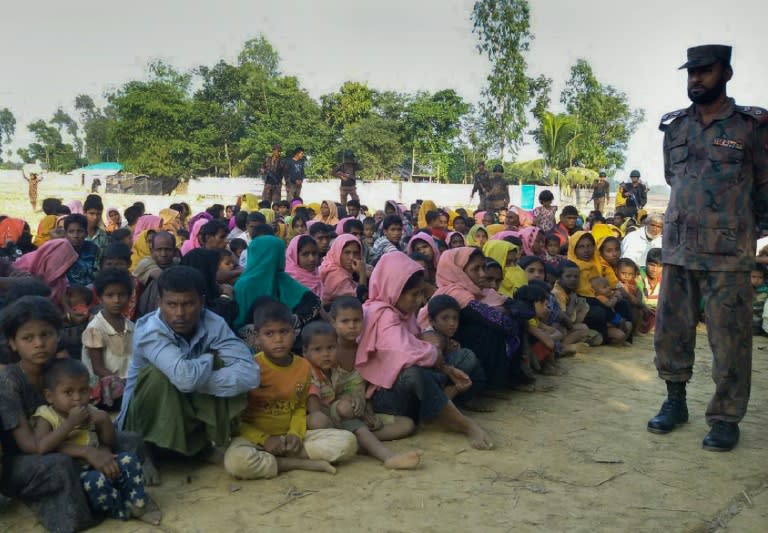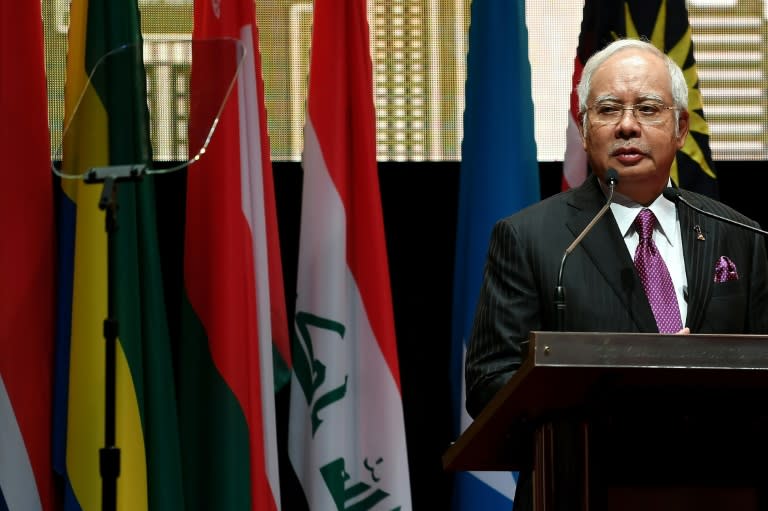Myanmar faces barrage of criticism over Rohingya crisis
Myanmar's leadership was fending off a barrage of criticism on Friday over the Rohingya crisis, which a UN rights official said was destroying hope for the country's first elected government in a generation. More than 66,000 Rohingya have fled to Bangladesh to escape a military crackdown in the north of Rakhine state, bringing accounts of rape, arson and mass killings at the hands of security forces. The bloodshed has tarnished the image of the young government of Aung San Suu Kyi, which took power in March riding a wave of optimism after winning the first free elections in a generation. Hopes the Nobel laureate would usher in a more open era after half a century of military rule have faded as the government has dismissed accounts of abuses as lies and "fake news". On Friday, the UN's rights official for Myanmar warned the government's denials were destroying faith in Suu Kyi's fledgling administration. "The government's response to all of these problems seems to currently be to defend, dismiss and deny," UN special rapporteur on Myanmar Yanghee Lee told reporters after a tour of the country, including a visit to Rakhine. "This response is not only counterproductive but is draining away the hope that had been sweeping the country." The crackdown started three months ago after deadly raids on police border posts which Myanmar said were carried out by foreign-trained Rohingya militants backed by Middle Eastern money. Lee condemned the attacks, but blamed the government for driving some to militancy. "If the affected population had felt that the new government would start addressing their situation and grievances then extreme elements would not have easily been able to hijack their cause," she said. Myanmar has long faced international criticism for its treatment of the Rohingya, who are denied citizenship and live in conditions rights groups have compared to apartheid. Most among Myanmar's Buddhist majority call them Bengalis -- shorthand for illegal immigrants from neighbouring Bangladesh -- even though many have lived in Myanmar for generations. The recent crackdown has galvanised anger in the Muslim world and particularly nearby Malaysia, whose Prime Minister Najib Razak has accused Suu Kyi of allowing "genocide" on her watch. On Thursday he used an extraordinary meeting of the Organization of Islamic Cooperation (OIC) to call for an end to the "unspeakable cruelty" being unleashed against the Rohingya. His comments drew an angry response from Myanmar, who said he was hijacking the situation in Rakhine to further his own political agenda. Najib is "is using Myanmar for his own political interests, against the principles of ASEAN," deputy director of Myanmar's foreign ministry, Aye Aye Soe, told AFP, citing the Southeast Asian bloc. "They criticise us without hesitation based on news reports from different places, including news from unreliable sources, without discussing the issue like a good neighbour. We are deeply sorry about this."




